Strengthening Urban Water Infrastructure: A Key to Sustainable Cities
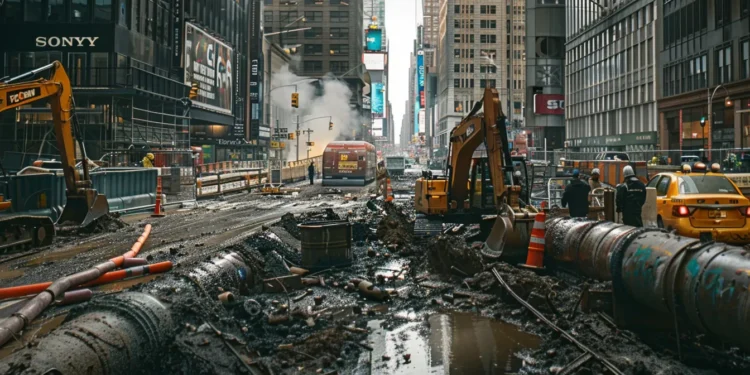
Urban water infrastructure faces critical challenges in the 21st century. How can cities ensure reliable, sustainable water systems for growing populations? This article explores innovative solutions for modernizing urban water infrastructure, focusing on management strategies, pipeline improvements, and investment models like revolving funds. We’ll examine effective policies for climate change adaptation and highlight successful initiatives from cities worldwide. By strengthening water systems, urban areas can enhance sustainability, improve public health, and boost economic resilience.
Table of Contents
- 1 Key Takeaways
- 2 Understanding the Role of Urban Water Infrastructure in Sustainable Cities
- 3 Challenges Facing Urban Water Infrastructure Today
- 4 Innovative Solutions for Modernizing Water Systems
- 5 Developing Effective Policies and Investment Strategies
- 6 Benefits of Strengthened Urban Water Infrastructure
- 7 Learning From Successful Urban Initiatives
- 8 Conclusion
Key Takeaways
- Urban water infrastructure is crucial for sustainable cities and faces challenges from aging systems and climate change
- Smart technologies and green infrastructure are revolutionizing urban water management for improved efficiency and sustainability
- Public-private partnerships and alternative financing models are essential for addressing urban water infrastructure challenges
- Strengthened water infrastructure improves public health, economic growth, and resilience to environmental challenges
- Successful urban water initiatives from Singapore, Copenhagen, and Cape Town offer valuable lessons for developing cities
Understanding the Role of Urban Water Infrastructure in Sustainable Cities

Urban water infrastructure plays a crucial role in sustainable cities. This section explores the definition of water systems, their connection to urban sustainability, and the impact of urbanization on water resources. It examines how Infrastructurist, reservoirs, water management, and climate change adaptation affect urban areas. The discussion also covers restoration efforts and fee structures for maintaining these vital systems.
Defining Urban Water Infrastructure
Urban water infrastructure encompasses a complex network of systems designed to manage, distribute, and treat water resources in cities. These systems include technology-driven solutions for water supply, wastewater treatment, and stormwater management, all of which are crucial for urban sustainability. As cities grow and face challenges from climate change, policymakers must adapt these systems to ensure resilience and efficiency, especially in comparison to rural areas where infrastructure needs differ significantly:
- Water supply networks
- Wastewater treatment facilities
- Stormwater management systems
- Reservoirs and storage facilities
- Water quality monitoring technology
The Link Between Water Systems and Urban Sustainability
Urban water systems form the backbone of sustainable cities, interconnecting various elements such as hydroelectricity production, groundwater management, and water utilities. These systems not only provide essential services but also contribute to urban resilience, especially during emergencies as recognized by the Federal Emergency Management Agency. Efficient water infrastructure supports a skilled workforce and economic growth while enabling cities to adapt to climate change challenges, making it a cornerstone of urban sustainability efforts.
Impact of Urbanization on Water Resources
Urbanization significantly impacts water resources, placing immense pressure on existing infrastructure. As cities expand, the demand for clean drinking water increases, often straining water treatment facilities and aging distribution systems, including lead pipes. California, for example, faces unique challenges in managing its water resources due to rapid urban growth and periodic droughts. To address these issues, municipalities must leverage innovative technologies and sustainable practices to ensure adequate water supply and quality for growing urban populations.
Challenges Facing Urban Water Infrastructure Today
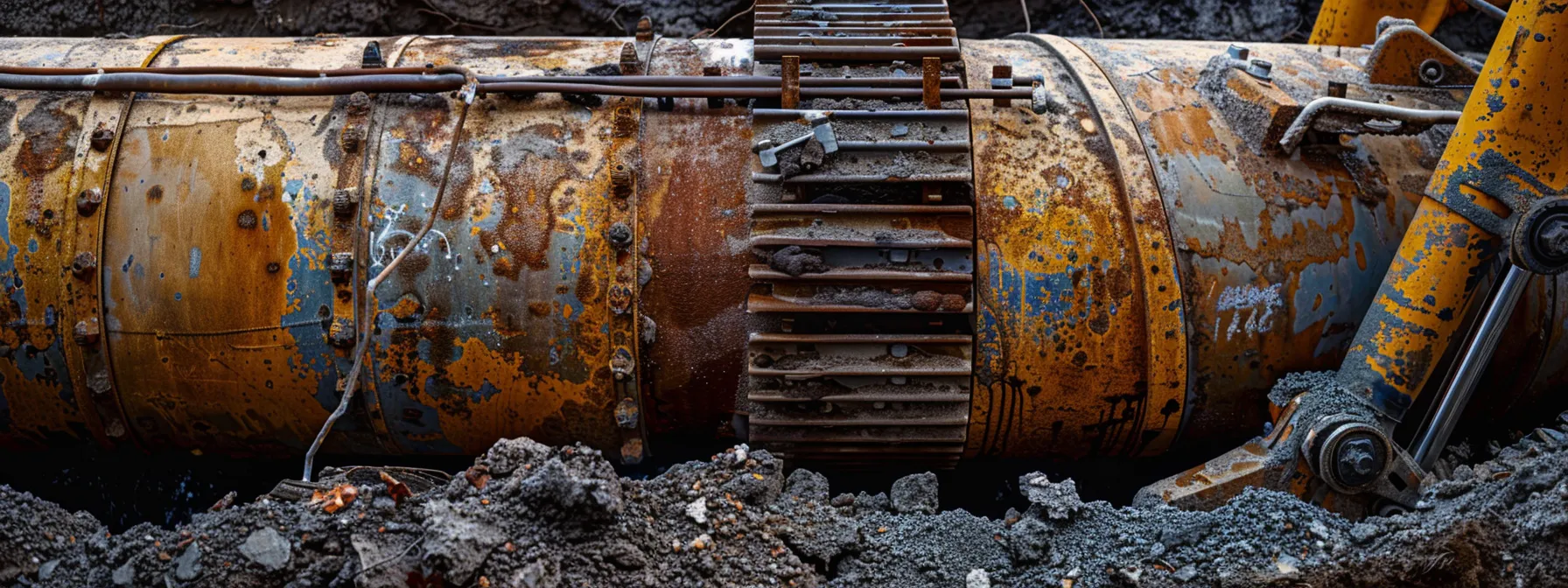
Urban water infrastructure faces significant challenges today, including aging systems, rapid population growth, environmental pressures, and financial constraints. These issues affect streams, aquifers, and construction projects across states like Ohio. Addressing these challenges requires innovative research and sustainable solutions to ensure resilient water systems for growing cities.
Aging Systems and Maintenance Issues
Aging water infrastructure poses significant challenges for urban communities, particularly in colonias where sewage treatment facilities are often inadequate. Many cities face the risk of system failures due to outdated pipes and treatment plants, increasing the potential for water contamination and service disruptions. Addressing these issues requires substantial financial investment and community engagement to prioritize infrastructure upgrades and maintenance. The following factors contribute to the complexity of managing aging water systems:
- Deteriorating pipes and equipment
- Increased maintenance costs
- Water quality concerns
- Limited funding for upgrades
- Regulatory compliance challenges
Rapid Population Growth and Demand Surges
Rapid population growth in urban areas strains water infrastructure, leading to increased demand for surface water and groundwater resources. Cities like Detroit, Michigan, face challenges in balancing ecosystem preservation with the need for expanded water services. To address these issues, municipalities are exploring innovative solutions such as water reuse programs and implementing legislation to manage consumption. These efforts aim to ensure sustainable water supply while protecting vital ecosystems and meeting the needs of growing urban populations.
Environmental Pressures and Climate Change Effects
Climate change poses significant challenges to urban water infrastructure, manifesting in extreme weather events like droughts and floods. These environmental pressures strain water systems, affecting agriculture and increasing the risk of pollutant contamination. Urban planners must adapt infrastructure to withstand these challenges, incorporating education initiatives to promote water conservation and sustainable practices. As cities grapple with changing precipitation patterns and rising temperatures, innovative solutions are essential to ensure resilient water supplies for growing urban populations.
Financial Constraints and Funding Shortfalls
Financial constraints pose significant challenges for urban water infrastructure, impacting everything from lake management to irrigation systems. Many cities struggle to secure adequate funding for climate change mitigation efforts and essential upgrades. In regions like Mexico, where copper mining affects water quality, limited resources hinder the implementation of comprehensive water treatment solutions. This funding shortfall often leads to deferred maintenance and delayed modernization projects, potentially compromising the long-term sustainability of urban water systems.
Innovative Solutions for Modernizing Water Systems

Urban water systems face modernization challenges, including improving water quality and managing contaminants like arsenic in tap water. Innovative solutions encompass smart water management technologies, sustainable treatment methods, water recycling, and green infrastructure practices. These approaches aim to enhance efficiency, reduce environmental impact, and provide reliable information for better decision-making in urban water management.
Implementing Smart Water Management Technologies
Smart water management technologies are revolutionizing urban water infrastructure by integrating data-driven solutions with existing systems. These innovations help governments and utilities optimize resource allocation, reduce waste, and improve service delivery. The Clean Water State Revolving Fund supports the implementation of these technologies, which can benefit both urban and farm environments. Smart meters, leak detection systems, and real-time monitoring tools enable more efficient water transport and distribution, ultimately conserving cash and ensuring clean water availability:
- Advanced metering infrastructure
- Predictive maintenance systems
- AI-powered water quality monitoring
- Automated demand forecasting
- Integrated watershed management platforms
Advancements in Sustainable Water Treatment Methods
Advancements in sustainable water treatment methods are addressing urban water scarcity and improving flood control. The Congressional Research Service reports that utilities are implementing innovative technologies to enhance water quality and reduce environmental impact. These methods include membrane filtration, UV disinfection, and biological treatment processes, which the National Institutes of Health have found to be highly effective in removing contaminants while conserving energy.
Encouraging Water Recycling and Reuse
Water recycling and reuse initiatives are gaining traction as innovative solutions for modernizing urban water systems. The American Water Works Association promotes these practices to conserve drinking water and reduce wastewater discharge. Municipalities are implementing advanced treatment technologies to meet the Lead and Copper Rule standards while repurposing treated water for non-potable uses. These efforts often incorporate wetland restoration projects, which serve as natural filters and enhance ecosystem services. Key strategies for encouraging water recycling and reuse include:
- Implementing dual plumbing systems for recycled water distribution
- Offering incentives for businesses adopting water reuse practices
- Developing public education programs on the benefits of recycled water
- Integrating recycled water into urban landscape irrigation
- Establishing regulations to facilitate safe water reuse in industries
Incorporating Green Infrastructure Practices
Green infrastructure practices are transforming urban water management in cities like Washington, enhancing water security and emergency management capabilities. These nature-based solutions, supported by the Safe Drinking Water Act, incorporate elements such as bioswales, permeable pavements, and rain gardens to mimic natural water cycles. By integrating these practices, cities can reduce stormwater runoff, improve water quality, and bolster their water resources, creating more resilient and sustainable urban environments.
Developing Effective Policies and Investment Strategies
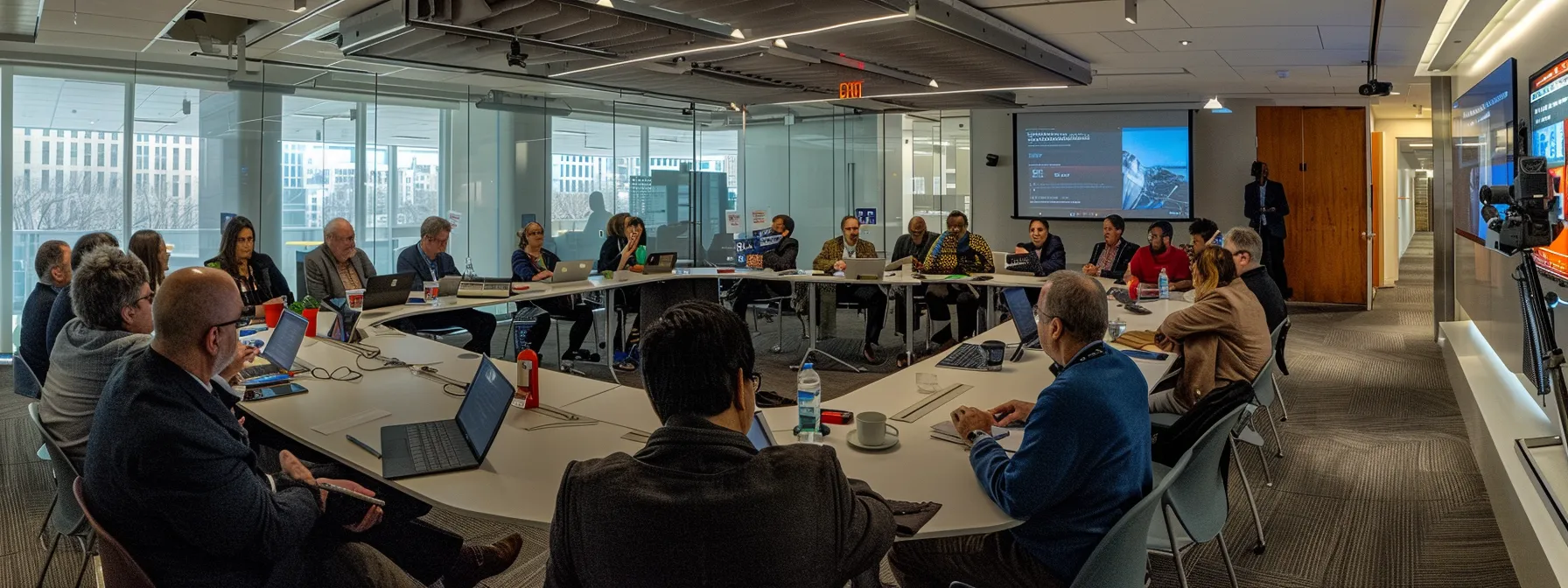
Developing effective policies and investment strategies is crucial for strengthening urban water infrastructure. This section explores supportive government policies, public-private partnerships, alternative financing models, and community engagement. It addresses challenges related to the Colorado River, environmental justice, energy efficiency, health equity, and wastewater treatment, emphasizing sustainable approaches to urban water management.
Formulating Supportive Government Policies
Formulating supportive government policies is crucial for addressing urban water infrastructure challenges, particularly in areas where lead contamination poses significant public health risks. These policies must prioritize water utility improvements in communities affected by poverty, ensuring equitable access to safe drinking water. Effective legislation can incentivize infrastructure upgrades, establish stringent water quality standards, and allocate resources for comprehensive testing and remediation programs:
Leveraging Public-Private Partnerships
Public-private partnerships offer a powerful mechanism for addressing urban water infrastructure challenges. These collaborations leverage the expertise and resources of private organizations to complement public sector efforts in modernizing water systems. By utilizing innovative financing models, such as performance-based contracts and revenue-sharing agreements, cities can effectively tackle issues like leak detection and estuary management. These partnerships often provide access to specialized technology and operational know-how, enabling municipalities to improve service delivery while reducing the burden on public loans and budgets.
Exploring Alternative Financing Models
Alternative financing models are essential for addressing urban water infrastructure challenges amid population growth and economic development pressures. Public utilities explore innovative approaches to fund projects that combat disease and improve public health. These models include green bonds, impact investing, and infrastructure banks, which can provide the necessary income streams for long-term sustainability. Cities increasingly leverage these financial tools to upgrade water systems, ensuring clean water access and supporting economic growth:
- Green bonds for eco-friendly water projects
- Impact investing focused on water infrastructure
- Infrastructure banks providing specialized financing
- Public-private partnerships for shared risk and investment
- User fees and tiered pricing structures
Engaging Communities and Stakeholders
Engaging communities and stakeholders plays a crucial role in developing effective policies for urban water infrastructure. Through participatory approaches, cities can gather valuable input on recycling initiatives, maintenance priorities, and consumer concerns. This engagement process helps regulators conduct comprehensive risk assessments, ensuring that water management strategies address local needs while promoting sustainable practices. By involving residents in decision-making, municipalities can foster a sense of ownership and responsibility towards water conservation efforts, leading to more effective implementation of infrastructure improvements and regulatory compliance.
Benefits of Strengthened Urban Water Infrastructure
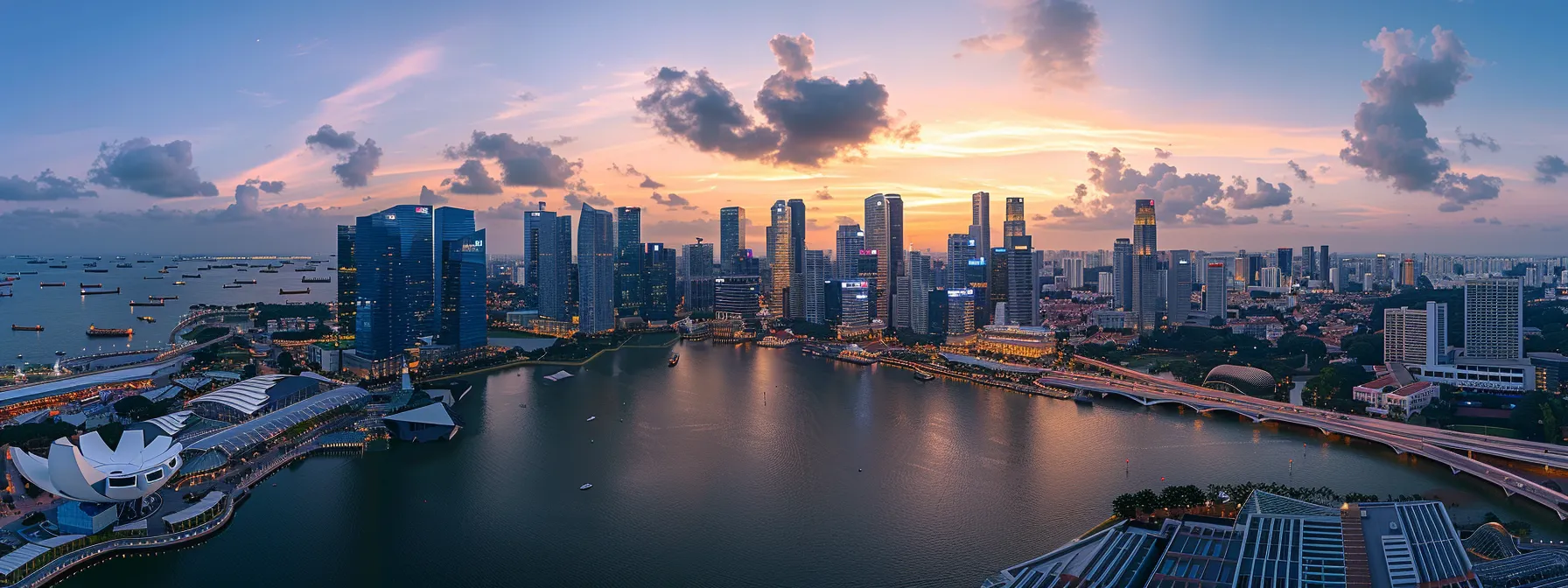
Strengthened urban water infrastructure yields significant benefits for cities, addressing challenges like floods and nonpoint source pollution. This section explores how improved systems enhance public health, resilience to climate challenges, economic growth, and equitable water access. From Utah’s water management to agency-led initiatives, these advancements are crucial for sustainable urban development.
Improving Public Health and Safety
Strengthened urban water infrastructure significantly improves public health and safety by ensuring clean water supply and effective waste management. Upgraded plumbing systems reduce the risk of waterborne diseases, while advanced treatment plants enhance water quality. Improved stormwater management systems mitigate flood risks during heavy rain, protecting communities and preventing the spread of contaminants. These enhancements contribute to a safer, healthier urban environment:
Enhancing Resilience to Environmental Challenges
Strengthened urban water infrastructure enhances resilience to environmental challenges by implementing robust water conservation measures and improving resource management. The Infrastructure Investment and Jobs Act provides funding for cities to upgrade their systems, helping prevent crises like the Flint water crisis and bolstering environmental protection efforts. These improvements enable municipalities to better withstand droughts, floods, and other climate-related stressors, ensuring a stable water supply for communities while safeguarding ecosystems.
Driving Economic Growth and Employment
Strengthened urban water infrastructure drives economic growth and creates employment opportunities across various sectors. Improved water systems attract businesses, particularly in water-intensive industries, fostering economic development around the Great Lakes region and beyond. During emergencies, robust infrastructure ensures continuity of operations, while ongoing maintenance and upgrades create jobs for engineers and skilled workers. Additionally, enhanced water management in states like Colorado supports industries such as agriculture and fishing, contributing to overall economic stability and growth.
Ensuring Equitable Access to Clean Water
Strengthened urban water infrastructure ensures equitable access to clean water, addressing disparities in water quality and availability across communities. Through improved distribution systems and the state revolving fund, cities like Los Angeles can reduce their water footprint while serving a growing population. This equitable access supports economic growth by providing reliable water resources to all sectors of the economy, fostering sustainable development and improving quality of life for residents.
Learning From Successful Urban Initiatives
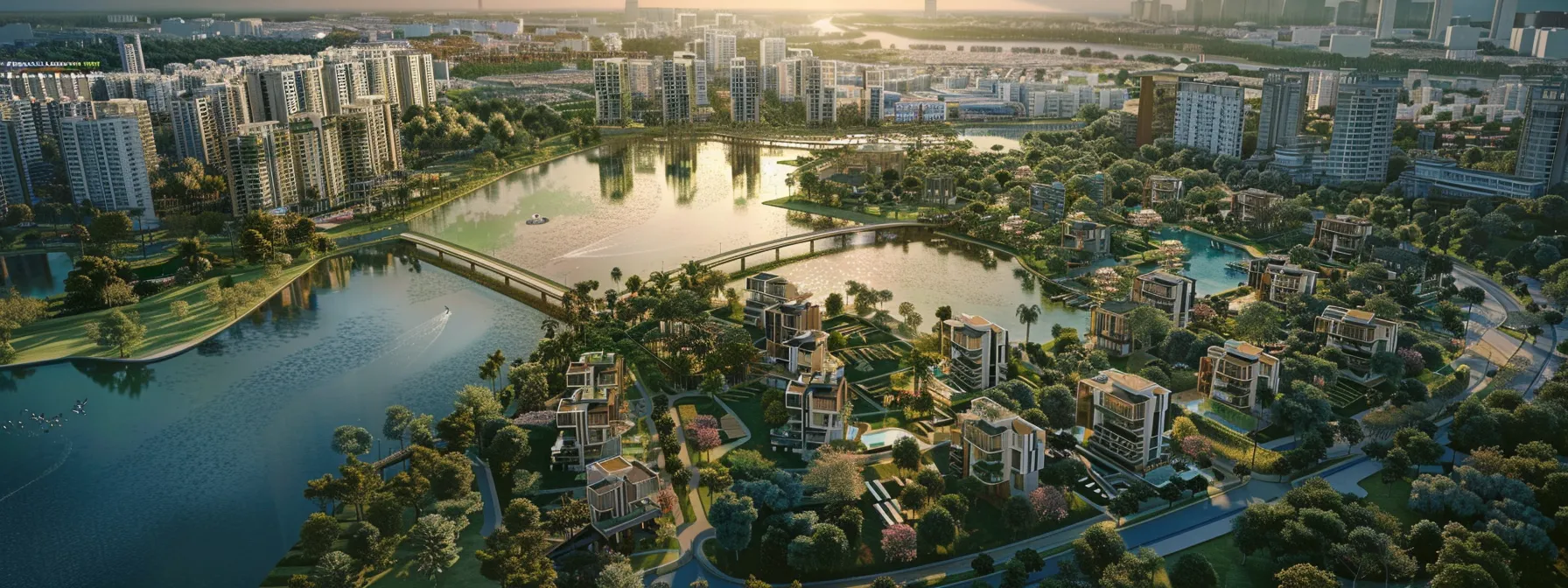
Successful urban water initiatives offer valuable lessons for strengthening infrastructure worldwide. Singapore’s integrated approach, Copenhagen’s climate-resilient efforts, and Cape Town’s water scarcity solutions demonstrate effective strategies. These examples, addressing issues from nitrate management to cost-effective asset management, provide insights for developing cities to enhance their water systems and comply with environmental laws while protecting rivers and waterways.
Singapore’s Integrated Water Management Approach
Singapore’s integrated water management approach serves as a global model for urban water sustainability. The city-state’s comprehensive strategy addresses water pollution, lead poisoning prevention, and innovative pipe maintenance within a constrained budget. By implementing the “Four National Taps” strategy, Singapore diversified its water sources, reducing reliance on imported water and enhancing resilience against shortages. This approach includes:
Copenhagen’s Climate-Resilient Infrastructure Efforts
Copenhagen’s climate-resilient infrastructure efforts serve as a model for cities worldwide, including those in Canada and Arizona. The Danish capital has implemented innovative solutions to address sewage management and enhance urban resilience. Copenhagen’s approach integrates green infrastructure with traditional systems, creating a network of parks, bioswales, and water retention areas that mitigate flooding risks and improve water quality. These initiatives not only protect the city from climate change impacts but also enhance urban livability:
- Cloudburst Management Plan
- Blue-Green Infrastructure Projects
- Sustainable Urban Drainage Systems
- Coastal Protection Measures
- Citizen Engagement Programs
Addressing Water Scarcity in Cape Town
Cape Town’s response to severe water scarcity offers valuable lessons for urban water management. The city implemented a comprehensive strategy that included strict water restrictions, dam management, and geological assessments to secure clean water supplies. These efforts, aligned with the Clean Water Act principles, demonstrated the importance of proactive infrastructure planning. The American Society of Civil Engineers recognized Cape Town’s innovative approaches, which successfully averted a water crisis and improved the city’s long-term water resilience:
Adapting Lessons for Developing Cities
Developing cities can adapt lessons from successful urban water initiatives to strengthen their infrastructure and improve regulatory compliance. By leveraging data-driven asset management strategies, these cities can optimize their limited resources and prioritize critical upgrades. The United States Environmental Protection Agency offers guidance on implementing cost-effective solutions that align with local needs and regulatory requirements. Key strategies for adapting successful urban water initiatives include:
- Implementing integrated water management systems
- Adopting smart metering technologies for better data collection
- Developing public-private partnerships to finance infrastructure improvements
- Prioritizing green infrastructure solutions for stormwater management
- Establishing community engagement programs to promote water conservation
Conclusion
Strengthening urban water infrastructure is crucial for building sustainable cities that can meet the challenges of rapid population growth, climate change, and resource scarcity. By implementing innovative solutions such as smart water management technologies, sustainable treatment methods, and green infrastructure practices, cities can enhance their resilience, improve public health, and drive economic growth. Effective policies, alternative financing models, and community engagement are essential for developing and maintaining robust water systems that ensure equitable access to clean water for all urban residents. Learning from successful initiatives worldwide and adapting these lessons to local contexts can help cities create integrated, climate-resilient water infrastructure that supports long-term sustainability and enhances quality of life for urban populations.






